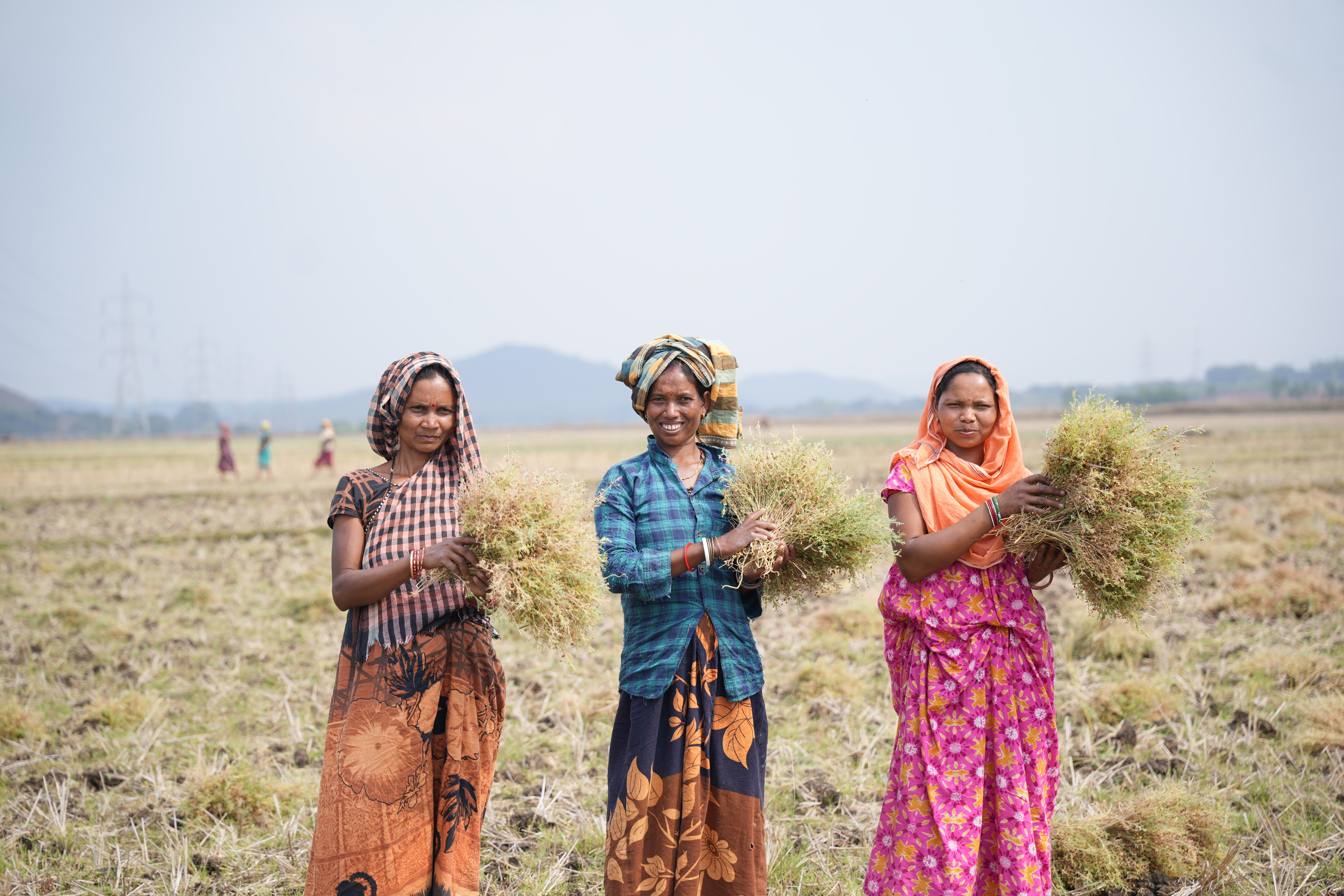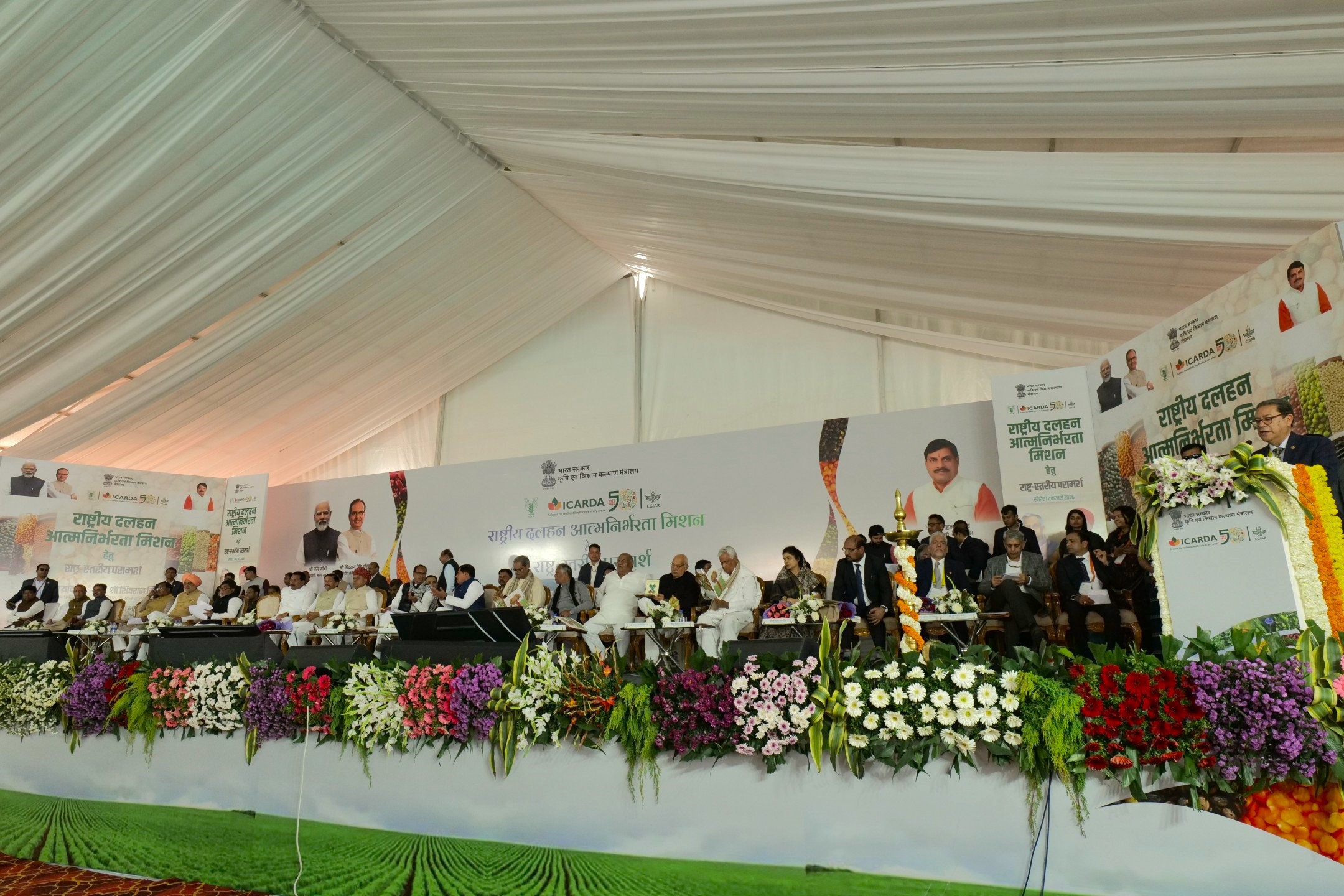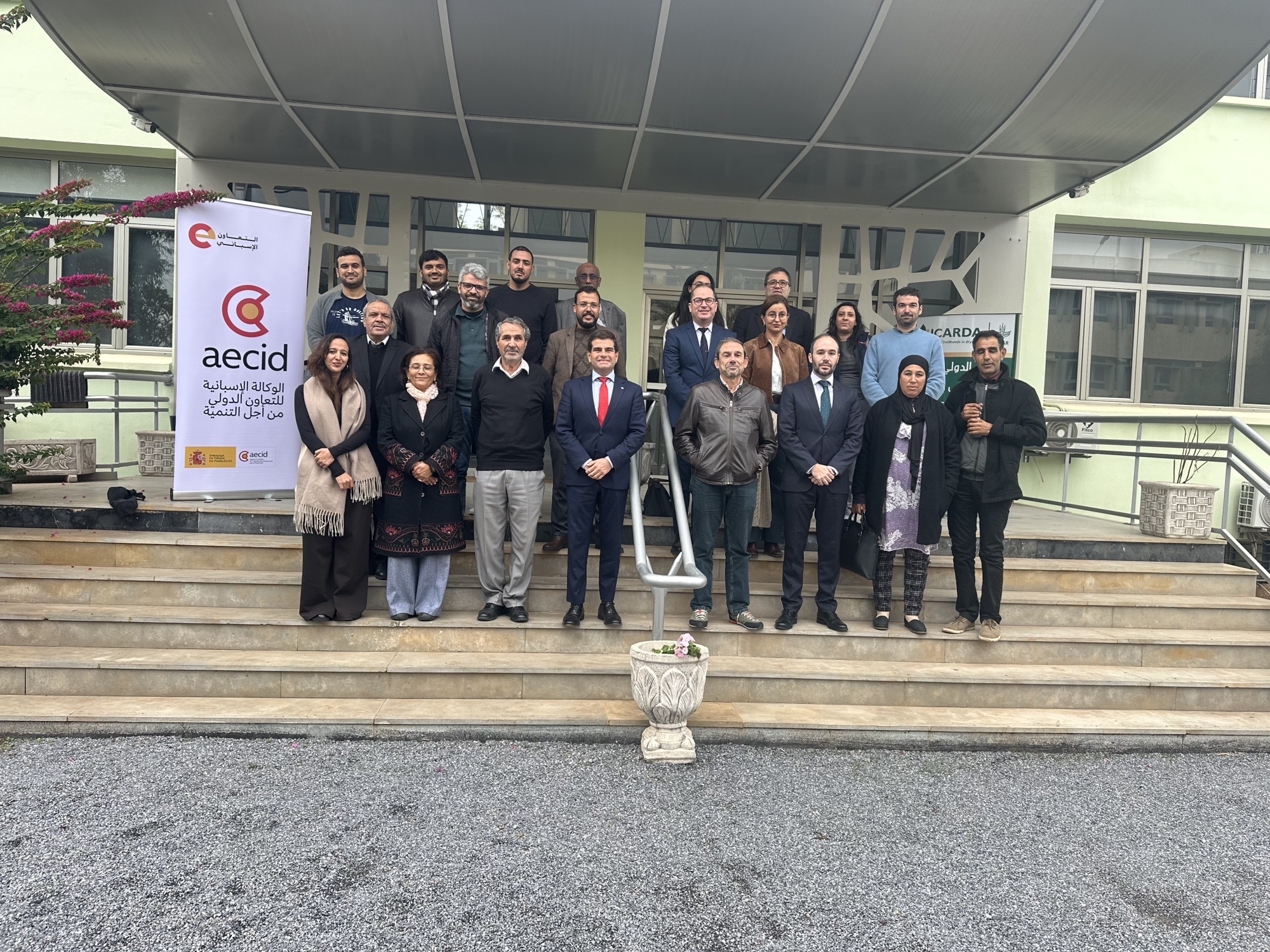Jawahir Wheat Brings Drought Resilience to Morocco

In southern provinces like Tiznit, the 2024–2025 season saw many farmers delay planting as rains arrived months late. “We prefer not to plant. It’s too dry,” explained a farmer in Sidi Abdellah El Bouchouari, Tiznit.
Durum wheat is a staple of Moroccan diets and crucial for national food security. Although Moroccan farmers have managed to produce cereal with limited water for centuries, repeated droughts over the past decade have made it increasingly difficult for cereal farming families to grow enough.
A Jewel from the Wild
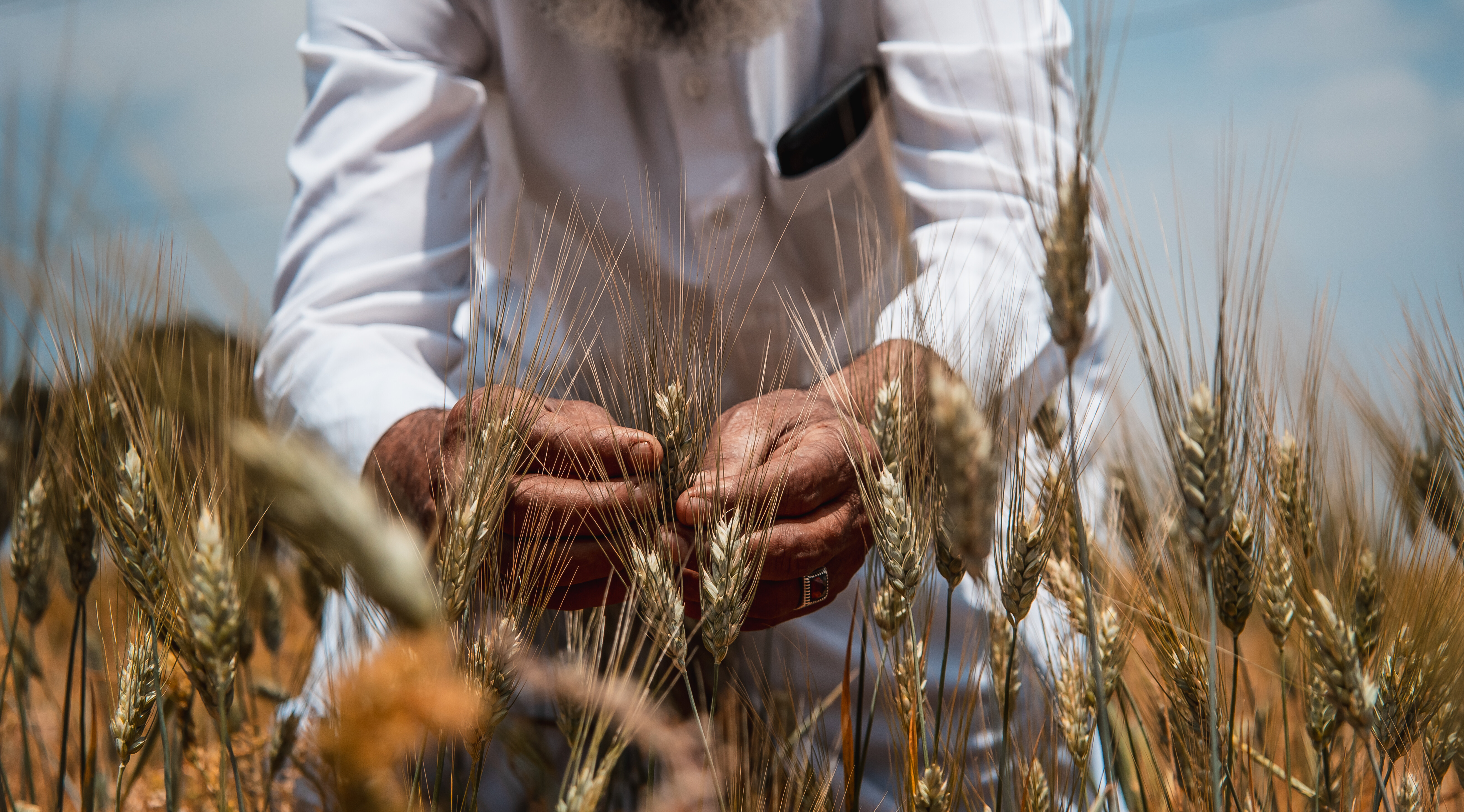
Jawahir, Arabic for “jewels,” is a durum wheat variety bred to withstand drought. Developed with genetic material from Triticum araraticum, a wild relative of durum wheat preserved in ICARDA’s genebank, Jawahir was released in Morocco in 2023 by the National Institute for Agricultural Research (INRA).
The variety is the product of more than a decade of research and field testing carried out by ICARDA and INRA with support from the Crop Trust’s Biodiversity for Opportunities, Livelihoods, and Development (BOLD) Project, funded by the Government of Norway. BOLD works globally to conserve crop diversity and turn it into practical solutions for farmers. conserve crop diversity and turn it into practical solutions for farmers.
“Wild plants, which have survived millennia of extreme climatic conditions without the help of farmers, contain traits that can help us build resilient crops capable of withstanding the pressures of today’s climate crisis,” explains Dr. Benjamin Kilian, Senior Scientist at the Crop Trust.
Tested in Tough Conditions
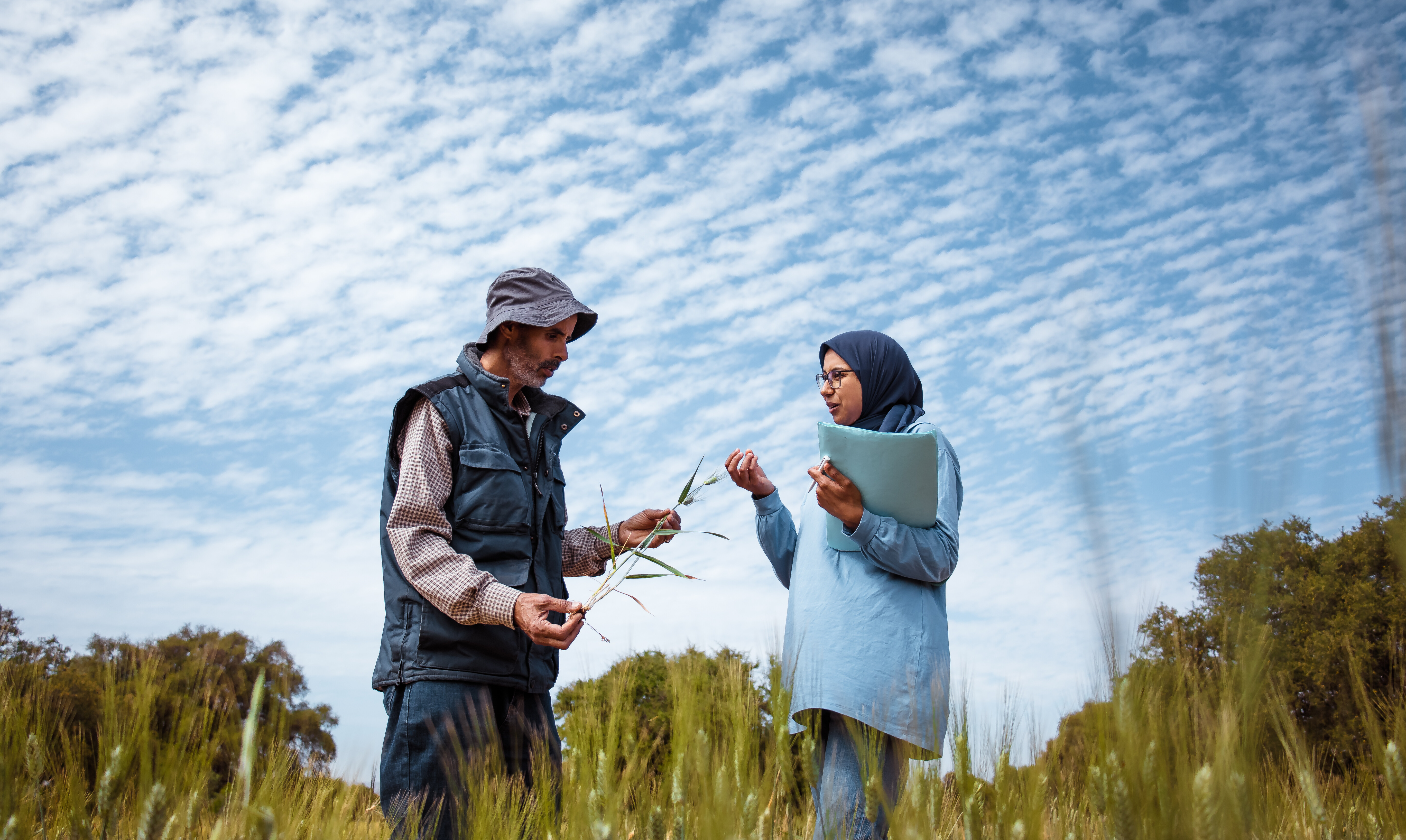
Since 2020, farmers in drought-hit provinces in Morocco like Essaouira, Tiznit, and Safi have tested Jawahir alongside older wheat varieties. Jawahir has yielded over 1.5 tons per hectare, even in severe drought, while other varieties in the same fields often struggled to reach 1 ton.
Seeds for the Future
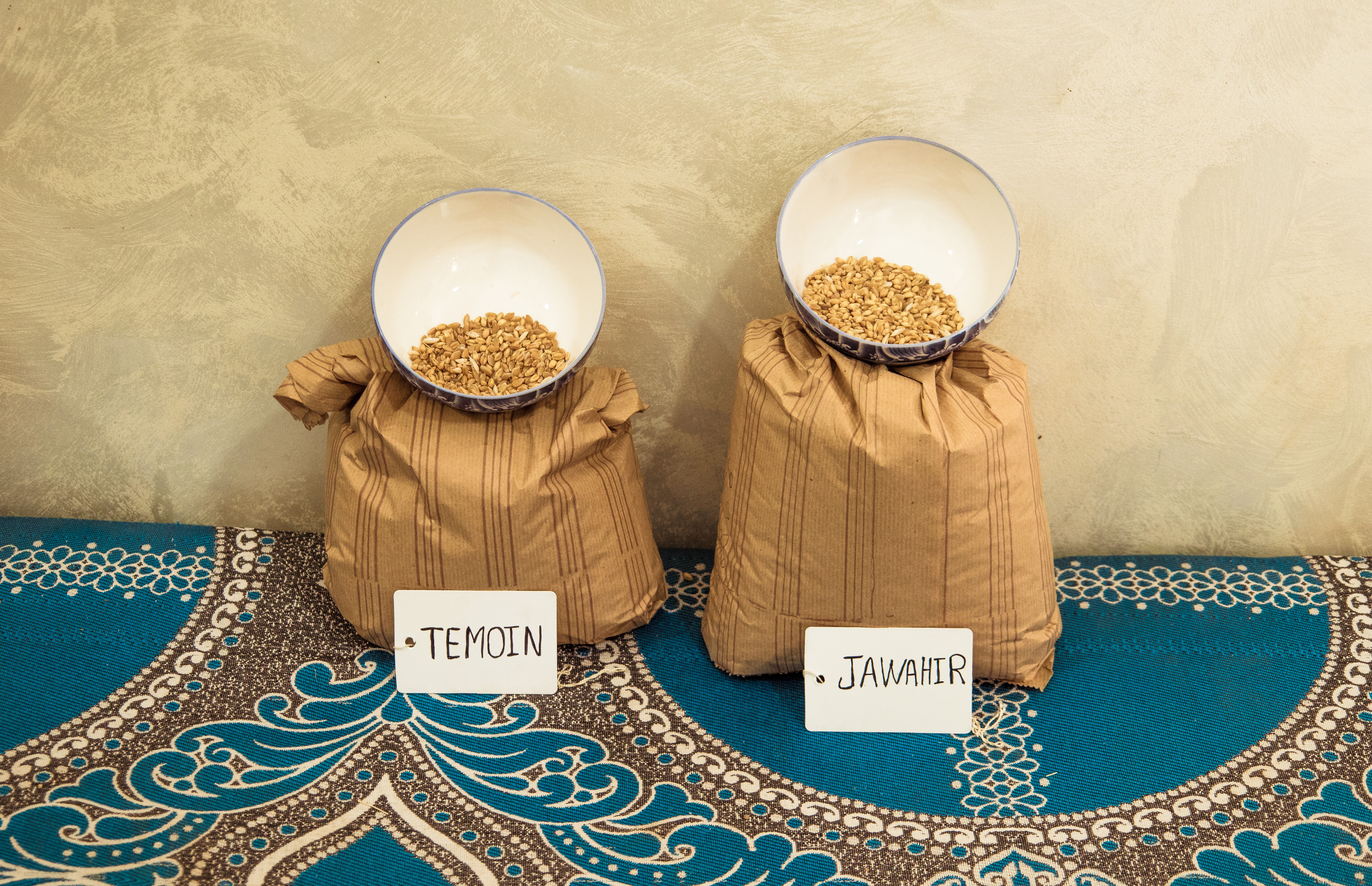
For Jawahir to spread, farmers need seeds. Typically, in Morocco, it takes six years for a new variety to reach commercial scale. But given the urgent need for drought-tolerant wheat, the Ministry of Agriculture fast-tracked Jawahir’s seed multiplication due to its “national importance in the face of drought.”
INRA, together with La Société Nationale de Commercialisation des Semences (SONACOS), the Association Marocain de Multiplicateurs de Semences (AMMS), and the Fédération Nationale Interprofessionnelle des Semences (FNIS), is working to shorten the timeline and make certified seed available by 2027, two years ahead of schedule.
“Achieving commercial scale four years after official release will set a new record for us, but thanks to the support of our government and all our seed partners, I feel it can be done,” said Moha Ferrahi, INRA’s director of breeding and genetic resources.
A Practical Response to Climate Change
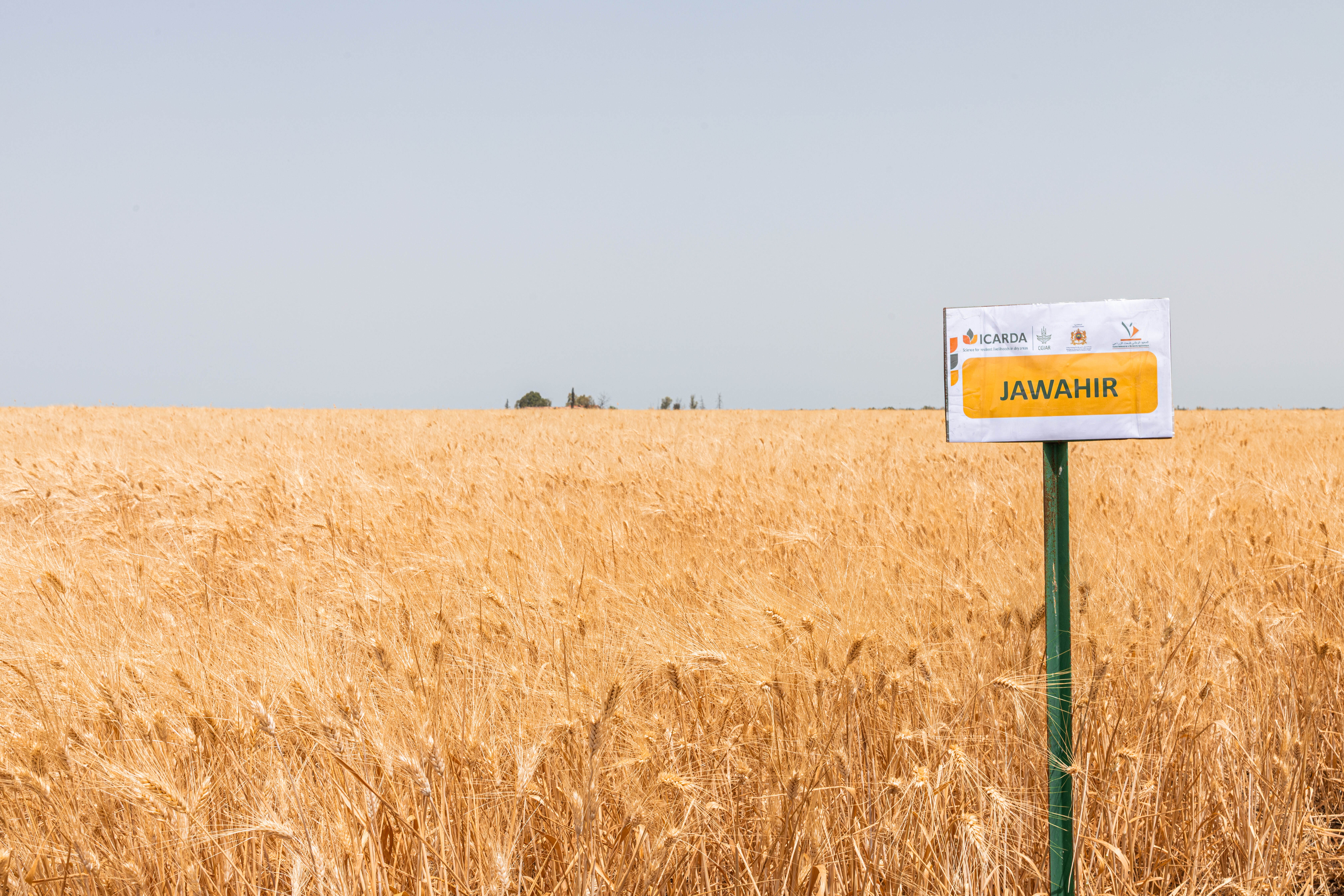
Jawahir shows what’s possible when science, seed systems, and farmers come together. From a wild wheat preserved in a genebank to a variety now growing in Moroccan fields, Jahawir's journey is proof that practical solutions to climate change already exist - and that policy support turns promise into scalable progress.

